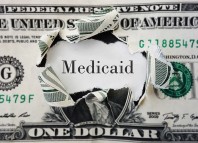TechOWL Webinar Regarding Assistive Technology and Augmentative and Alternative Communication
Message from Deputy Secretary Ahrens to CPS & Employment Service Providers
PA Department of Agriculture Adopts Temporary FDA Food Labeling Policy
PA Receives $34 Million to Provide Essential Services to Older Adults
ODP Updates Form for Reporting Cases of COVID-19
The Office of Developmental Programs (ODP) released an updated version of Announcement 20-049, Coronavirus Disease 2019 (COVID-19): Reporting Cases of COVID-19 and Requesting Personal Protective Equipment (PPE). This updated version of the announcement includes Page 5 of the document as a separate attachment that is easily editable by providers. Directions for submitting the form remain in the body of the announcement. For your convenience, Attachment 1: Critical PPE Needs Assessment Questionnaire, included in the original distribution, is also being included with this release.
OMHSAS Stakeholder Update Webinar April 30
The Pennsylvania Department of Human Services, Office of Mental Health and Substance Abuse Services (OMHSAS) will be holding a stakeholder webinar this Thursday, April 30, from 11:00 am – 11:30 am to provide updates on the work OMHSAS has been performing during the ongoing COVID-19 pandemic.
Please register here to participate. After registering, you will receive a confirmation email containing information about joining the webinar.
If you have questions or feedback, please contact RCPA Policy Directors Jim Sharp or Sarah Eyster.
Governor Announces May 1 Statewide Reopening of Limited Outdoor Recreational Activities
ODP Clarifies Reporting of COVID-19 and Requesting PPE
ODP Announcement 20-049 combines established guidance for reporting cases of COVID-19 with new
guidance on contact tracing and requesting PPE. ODP remains committed to keeping stakeholders informed with the latest information and practice guidance, necessitated by the evolving guidance from both federal and state government.
This announcement also gives more detailed information to assist stakeholders about the reporting/requesting process including a table to use as a quick reference that outlines activities, actions, and stakeholders for whom this applies when reporting COVID-19 cases and requesting PPE.
When ODP-licensed settings/providers experience a critical need for obtaining PPE, they should collect the information on the attached “Critical PPE Needs Assessment Questionnaire v.3 4.21” form and send it as an attachment to this email.
Questions about this Announcement can be directed to the ODP Regulatory Administration Unit.














